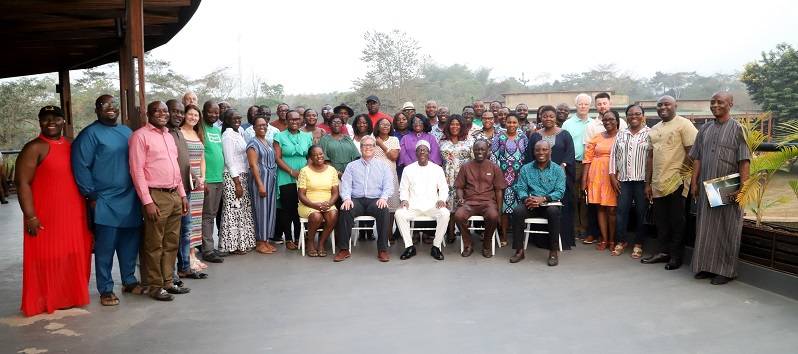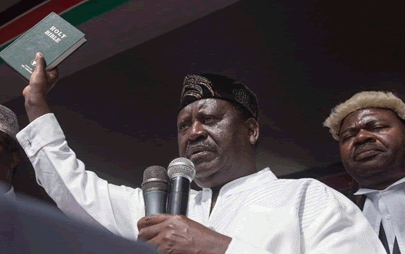
By Ebenezer OWUSU-ANSAH
The bustling markets of Accra, Kumasi, Takoradi etc, glow with the promise of commerce with vendors calling out to passerby’s, trotro mates, hollering for passengers, and shopkeepers tending to shelves of goods. Ghana often dubbed the gateway to West Africa, is a country brimming enterprise and cultural pride.
However, beneath this façade lies a looming crises of poor customer service that if not given urgent attention, threatens to impede national growth.
Service in nation building
Customer service is more than just a business tool. It is a national value system that reflects the culture of a national value system. Nations are built on trust, efficiency, dignity, and shared responsibility. All of which are reflected in how a people serve and are served.
In successful economies, excellent service is not selective or a luxury. It’s a way of living imbibed in the national psyche of the citizenry. In japan for instance, customer service (Omotenash) is rooted in hospitality. In the west, consumer rights and satisfaction are protected by law and culture alike. In these countries good service promotes national branding, loyalty, and attracts investments. In the same way Ghana must appreciate customer service not as a courtesy but as a strategic lever for national transformation and a memorable experience.
The service disconnect: Ghana’s dilemma
Despite economic progress and the increasing sophistication with which business is generally ran in Ghana, customer service still remains inconsistent at best and poor at worst. This can be seen in all facets, be it government offices, banks telecom call centers, hospitals, or even retail outlets. Ghanaians report on a daily basis experiences of
- Unfriendly or dismissive staff
- Long queues and unexplained delays
- Lack of accountability
Such experiences tend to frustrate citizens, deter investors and erode confidence in institutions that tend to undermine nation building. The renewing of a passport, or the registering of a company in Ghana is nothing to write home about in the public service.
The Telco’s are no better, the long queues to solve simple issues. The call centers sometimes ring without any response. Poor network services amid the high cost of services rendered just makes you think the telcos think they are doing you a favour when indeed without you the telco would not exist.
One would think the welcoming nature of Ghanaians is enough to move the hospitality industry. Poorly trained staff are the ones manning such vital institutions because proprietors cannot afford to pay qualified people. Tourist leave frustrated and unsatisfied. They spread the bad news to friends and relatives.
The cost of poor customer service
The cost of poor customer service to a nation are far reaching. Its damaging effects include the following:
Lost revenue: most often uninspiring service to the customer/client drives them away. It also has the tendency of turning away potential clients as previous customers discuss their bad experiences with others. Low productivity, the loss of clients and time lost in inefficient services rendered would obviously translate national inefficiency and frustration.
Possible causes of Ghana’s service challenges:
Lack of training: Many service staff especially at the frontline are laid back. They are not knowledgeable and lack proper training in communication, conflict resolution and customer care.
Low motivation and compensation: most customer service people are underpaid, overworked and poorly resourced. The result of such unfavorable harsh conditions more often leads them to less prioritize quality service.
Weak accountability systems: most institutions in Ghana do not link staff performance to customer satisfaction in their appraisals. As such customer complaints mostly are ignored and not resolved. Since such issues hardly get to the supervisors or management, strategies are not formulated to improve customer service or the products.
Cultural misconceptions: the misconception that providing a service should not translate into subordination, leads to defensive attitudes that tend to frustrate the client.
Solution to the problem of poor customer service: the automation of public services could greatly enhance the efficiency of public service by reducing human interaction whiles enhancing user experience. Also consumers should be empowered to access feedback channels that ensure business response to complaints transparently and promptly.
Conclusion:
Customer service must not be taken for granted. It is the tool with which a nation can be built. When a service is rendered efficiently, the client feels valued and motivated. National pride grows and they tend to show loyalty to a brand. Just imagine if that brand is locally produced.
Ghana stands at a critical threshold. The nation is gaining in many areas, from technology to trade, education to infrastructure. However, unless the ethos of services improve in public offices, private enterprises and everyday practices – full potential of this growth will not be realized.
Nation building does not only begin with leadership, laws or large scale projects, we must migrate from these lofty ideals to the simple things of life that give dignity to us Ghanaians. As Ghanaians we should make the conscious effort to listen to each other, understand and implement. A simple thank you, sorry welcome, being honest and a genuine pursuit to serve mother Ghana with a smile will take us far,
The post Customer service and nation building: The dilemma appeared first on The Business & Financial Times.
Read Full Story



















Facebook
Twitter
Pinterest
Instagram
Google+
YouTube
LinkedIn
RSS